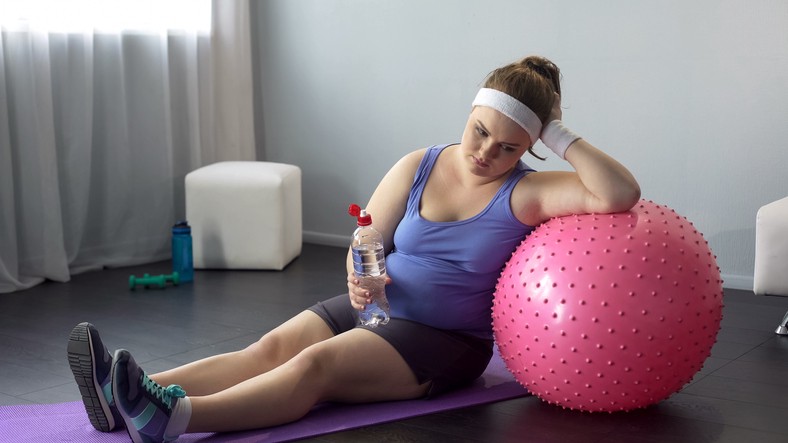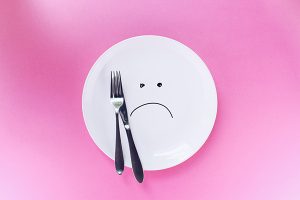
The importance of weight loss portion control cannot be overstated. When given a greater portion, people eat more. A serving is an exact amount of food. You should not exceed this amount. Measurement cups are a great way to control portion size. You can also use everyday objects for reminders. You can use everyday objects as reminders. These guidelines will help you lose weight without the sacrifice of taste.
Moderation
One common misconception about moderation says that you should avoid overeating. Moderation is not about limiting food intake, it is about personal preferences. For weight loss and good health, eating the right amount of food is essential. This requires discipline and awareness. Portion Control containers are vital. These containers help transform healthy foods and produce balanced meals.

Measuring portions
Measuring portion sizes is important for achieving weight loss goals. By measuring various foods with everyday objects, you can find out the correct serving size. One serving of fruit, vegetables or other vegetable equals approximately half a woman’s fist. One cup of cooked pasta or rice is equivalent to one tablespoon. One ounce (or three-quarters) of a ball is equivalent to about one-third of an ounce of meat and fish. For nuts and seeds, one tablespoon equals about two-thirds of a ping-pong ball.
Using a portion control plate
Using a portion control plate for weight management can be a good way to lose weight without counting calories. A portion control plate helps you see the food you eat. It is also a great way to reduce mindless eating. This plate will help you limit the amount of grains that you consume by only serving one person at a meal. It reminds us of the importance protein and variety in every meal.
Mindful eating
Mindful eating encourages people to slow down, take in the flavors and savor every bite. This mindful eating slows down digestion, which makes you feel fuller for longer. You don't have to give up your treats, but mindful eating should not be a way of denying yourself pleasures. Portion control should be the main goal of every meal. Use small plates to reduce portion sizes. This program is not suitable for all.

Calorie counting
Calorie counts for weight reduction are a great way, but they don't always work. People often use calorie counting to lose fat, but it isn't suitable for people who suffer from disordered consuming. Tracking calories can encourage an unhealthy relationship to food, and it can worsen eating disorders. One study found that seventy-five percent of people with eating disorders used an online tool to track their calorie intake. Additionally, college students are at higher risk for developing an eating disorder due to calorie counting.
FAQ
What side effects can intermittent fasting have?
Intermittent fasting is safe and has no side effects. Some minor issues might occur if you do not plan your meals properly.
For example, if you skip breakfast, you might be irritable all day long. Also, you might experience dizziness, headaches, fatigue, muscle cramps, and dizziness.
These symptoms typically disappear in a matter of days.
What's the difference between intermittent fasting versus calorie restriction
Calorie restriction can be defined as eating less than your body needs. Intermittent fasting is different because it doesn't involve restricting calories. Instead, Intermittent Fasting is about eating fewer calories per day.
Intermittent Fasting is more efficient because you can enjoy the foods you love without feeling guilty.
Both methods have their advantages and disadvantages. You will need to decide which method is best for you.
How to Make an Exercise Plan?
It is important to establish a routine. You need to know what you will do each day and how long you will spend doing it. This helps you plan and prevents procrastination.
A second important thing to do is ensure you have lots of variety when it comes to your exercise routine. You don't want to become bored with exercise because then you won't stick with it.
You also need to keep track of your progress. It's important that you keep track of the weight you have gained or lost over time.
It is easy to lose motivation after you have lost weight. On the other hand, if you gain too much weight, it becomes harder to stay motivated.
Find a healthy balance between losing weight and gaining weight. If you are unhappy with your current situation, you will be less inclined to exercise.
What should you eat while intermittent fasting?
Cutting out carbs is the best way to lose weight. That means cutting out bread, pasta, rice, potatoes, and other carbohydrate-based food.
Protein will also keep you fuller for longer so try to limit how much you eat. So you won’t feel hungry as often.
Focus instead on foods high in healthy fats such olive oil and avocado, as well as nuts and seeds. These foods are satisfying and will keep your hunger at bay for hours.
It is important to drink enough water. Hydration is key to burning fat.
Sometimes you may feel compelled to eat these foods even if you're not fasting. This doesn't mean that you must give in to your cravings. If you do that, you may gain more weight then you lose.
To prevent overeating, try keeping an eye on how much you consume throughout the day. When hunger strikes, drink a glass of water instead of reaching for another snack.
This may seem counterintuitive. However, it's been shown to help you slim down. A study published online in Obesity revealed that people drank more plain water than they did sugary drinks.
Consuming water plainly also helped to decrease hunger. So if you really want to lose weight, skip the sweetened beverages and stick to water.
To lose weight, you don’t have to count calories or restrict certain foods. Instead, make small lifestyle changes.
Try swapping out your usual breakfast sandwich in favor of a bowl o' oatmeal. You can also swap out your afternoon cookie for a piece fruit.
These easy swaps can add up and help you lose weight without spending hours in the kitchen.
Can intermittent fasting interfere with my sleep?
Yes, intermittent fasting can impact your sleep. You may notice an increase in hunger hormones if you skip meals. This can lead to you waking up early in the morning.
Experts advise skipping breakfast. Experts recommend having a light snack before going to bed.
If you still feel hungry after eating this snack, you may want to eat a small breakfast before going to bed.
Overeating is not a good idea. If you do, you will gain weight rather than losing it.
How long do I need to fast for weight loss?
The answer may not be as straightforward as you think. For optimal fat loss, you need to take into account many factors. These are:
-
Your age. For example, if you're young (under 40), intermittent fasting may be too difficult for you because you have less time to recover from each day's fast. If you are older than 60, you might find it difficult to maintain a prolonged period of daily fasting.
-
Your current body composition. A longer period of fasting is more beneficial for those with a lot of muscle mass. For those with less muscle mass, however, you may be able to benefit from shorter fasting times.
-
How physically active are you. To ensure adequate rest between workouts, you might need to extend your fasting period if you exercise frequently.
-
Your health history. Additional fasting monitoring may be required for certain medical conditions such as diabetes or heart disease.
-
How can you manage stress? Stressful situations often make us eat less. To avoid this problem, you may need to increase the length of your fasting windows.
-
It is the type of diet you are following. Certain diets, like ketogenic diets, may require even longer fasting periods.
-
The quality of sleep you receive. Insufficient sleep has been associated with decreased metabolism and increased appetite. It may take some trial and error before you find the right combination.
-
Your daily intake of protein. A higher intake of protein may result in lower blood sugar levels. This would allow for you to fast more often.
-
Individuals who are trying lose or gain weight will require longer fasting times than those who are trying.
-
What percentage of calories do you consume during your fasting window? Fasting fewer calories per day may result in greater fat loss than fasting for more calories per day.
-
Your fitness level. Fasters who are very fit tend to have higher metabolic rates, which allows them to burn more calories throughout the day.
-
Your gender. Men are more hungry than women so they may have to fast for longer periods. Women tend to have smaller appetites so they might only need to fast for 20-30 minutes each morning.
-
Your lifestyle. Are you someone who does a lot of exercise? Do you workout several times each week? Are you a worker who sits at a computer all day? These factors could affect how much you should fast.
-
How much money are you willing to spend on food? Eating healthy foods doesn't necessarily mean spending much money on groceries. Whole grains can be replaced by white bread, fruits can replace candy bars, and lean cuts of meat can be used to save money.
-
How important it is for you to control your hunger. You might not have to fast as much if your hunger isn't a problem.
Statistics
- One 6-month study showed that simply doing 11 minutes of strength-based exercises 3 times per week resulted in a 7.4% increase in metabolic rate, on average. (healthline.com)
- A 12-week study in 20 women with obesity found that walking for 50–70 minutes 3 times per week reduced body fat and waist circumference by an average of 1.5% and 1.1 inches (2.8 cm), respectively (healthline.com)
- One study in 9 active men found that HIIT burned 25–30% more calories per minute than other types of exercises, including weight training, cycling, and running on a treadmill (18Trusted Source (healthline.com)
- According to Harvard Health, it's estimated that a 155-pound (70-kg) person burns roughly 112 calories per 30 minutes of weight training (5). (healthline.com)
External Links
How To
How can I lose belly fat quickly?
You need to realize that losing belly fat can be difficult. It takes dedication, hard work, and dedication. These tips will help you achieve your goals.
-
Healthy Food It is essential to eat healthy food. You should eat fruits, vegetables, whole grain, lean protein, nuts, seeds and legumes as well as fish, poultry and eggs. Avoid junk food.
-
Drink Water. Drinking water helps keep your body hydrated. This will make you feel fuller and more satisfied for longer periods. Make sure you drink lots of water every day.
-
Cardio exercises are a great way to burn calories and build muscle mass. Cardio exercises help you burn more calories and build muscle mass. They improve heart health and metabolism. You should do at least 30 minutes of cardio exercise per day.
-
Get enough sleep. Sleep plays a vital role in maintaining good health. Lack of sleep causes stress and anxiety, which leads to unhealthy habits like overeating and smoking.
-
Stress levels can be reduced. Stress can cause changes in brain chemistry and hormonal levels. Cortisol, a hormone which increases hunger pangs as well as cravings to eat high-calorie foods, is released when we're stressed.
-
Take Regular Breaks. Regular breaks are important throughout the day. Get out and take a stroll or a brief nap. This gives your body and mind time to relax.
-
Avoid Alcohol Consumption. Alcohol is a waste of calories that slows down the body's ability to digest food. If you're trying to lose belly fat, drinking alcohol should be avoided as much as possible.
-
Have fun!